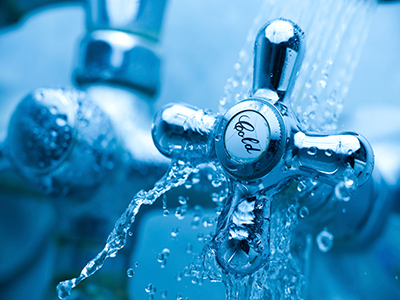If you are an employer, landlord, or property manager, you have a legal duty to protect the people in your building from Legionella. Part of this is undertaking and acting on the results of a fit for purpose risk assessment. As risk assessments are live documents, they need to be regularly reviewed. That’s why an annual check is best practice for most commercial buildings. Here’s everything you need to know about it.
What Is Legionella And Why Do You Need To Check For It?
Legionella is a bacteria that thrives in water systems. It’s naturally occurring, and if the conditions are right, it can thrive in either hot or cold water systems. It does particularly well in places where there is little water movement, such as water storage tanks or even just long runs of infrequently used pipes.
Legionella causes Legionnaires’ Disease. This is a severe and sometimes fatal form of pneumonia. It is especially serious for anyone over 45, smokers, and those with compromised immune systems. A significant number of people die each year from this illness.
Who Can Complete A Legionella Check?
In theory, anyone can carry out an inspection. However, they must be what HSE terms a ‘competent’ person. This means they must have the necessary skills, knowledge, and experience to carry out the appropriate checks and recommend control measures as required.
Since it is unlikely that you or a team member has this subset of skill and knowledge, the responsible thing to do is hire a professional.
What Is Involved In A Legionella Check?
The inspector will need to work with the building manager or the designated responsible person. They will first inspect any previous Legionella paperwork and monitoring logs. Once this is done, they will carry out a full inspection of the water systems in your building.
The inspection of the water systems will cover both the hot and cold water systems in their entirety. As part of the review, the inspector will test the water temperature everywhere they can. The inspector will also take several photographs to document their inspection.
Your inspector will put all of their findings into a report for you. The report will tell you if your building is safe or not.
What Happens If You Fail The Check?
If the inspector finds a problem with your water system, they will explain that in the report you receive. They will also identify the actions you need to take to remediate the situation. Once you have fixed the issues, you can get your system rechecked.
A Note For Landlords
Landlords are responsible for keeping their tenants safe. However, the law does not require that you get an annual inspection completed. It is at your discretion whether you feel a review is necessary. We would advise that the older the pipework, the more likely a check will be required. It may be better to get the situation assessed so that you know and have peace of mind that you have taken all reasonable actions to protect your tenants’ health.
If you’d like help with a legionella check, Assessment Hive can help. Contact the team today to arrange your appointment.







